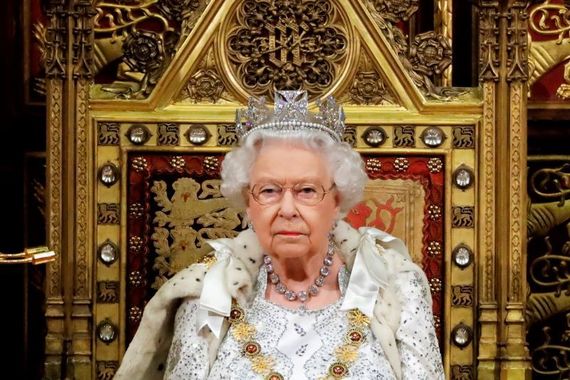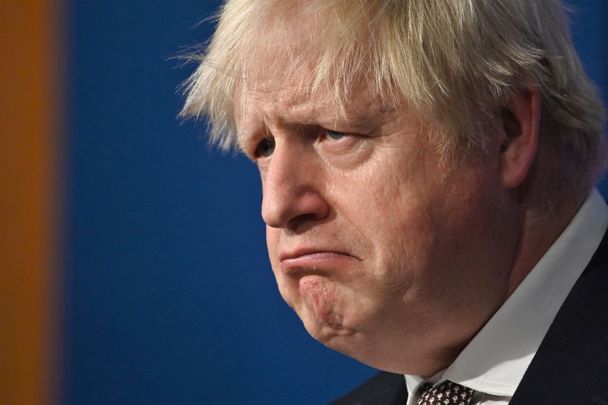A former Irish ambassador has hinted strongly that British Prime Minister Boris Johnson may balk at a threat to renege on the Brexit's Northern Ireland Protocol because it could be the final nail in his current faltering political career.
Bobby McDonagh, former ambassador to London, Rome, and Brussels, argued in The Irish Times why the timing was bad for Johnson to renege on a deal when Western democracies were strongly united in defense of international law in the face of Russia’s invasion of a peaceful neighbor.
McDonagh wrote that Downing Street had briefed the media that the British government was planning legislation purporting to give the U.K. the power to renege on the legally-binding Northern Ireland Brexit Protocol.
No national parliament had the power to rewrite an international treaty unilaterally, but it seemed that Johnson may consider that, having received a fixed-penalty notice for breaking domestic British Covid prevention laws, he has nothing much to lose by disregarding international law also.
(Opposition parties have called for Johnson’s resignation after he, his wife Carrie, and Chancellor Rishi Sunak were notified they will be issued fines for breaking Covid lockdown rules.)
Apart from the outrage in Western democracies, an expectation that Queen Elizabeth would announce “the incriminating domestic legislation” in May at the opening of the next parliamentary session would be a “disrespectful and demeaning gift” from the Johnson government to mark her platinum jubilee.
McDonagh added, “The queen is recognized as someone of integrity. Moreover, it would be particularly galling for her, as someone who has made a historic personal contribution to improving British-Irish relations, to be asked to announce a measure that is so confrontational and provocative towards Ireland.”

Queen Elizabeth. (Getty Images)
McDonagh went on to argue that if the legislation did proceed, it would face principled opposition in both houses of Parliament, including from decent Conservatives.
“Most significantly, Johnson’s very premiership seems increasingly to be hanging by a thread,” he wrote.
The Brexit Protocol was carefully designed and legally signed off on, by both the European Union and the British government itself, precisely to minimize Brexit’s inevitable damage to the Northern Ireland peace process.
Among further contributions to his argument, McDonagh outlined a number of obstacles in the path of any British plan to renege on a binding treaty.
The British government would gratuitously challenge Western unity in the face of Putin’s outrages. It would not be appreciated in the United States where the complexities of the Belfast Agreement are well understood. President Joe Biden had made his position on the protocol crystal clear.
Irrespective of diplomatic opinion, a pan-unionist legal challenge to the Northern Ireland Protocol will proceed in Britain’s highest judicial sitting, the Supreme Court.
A group of politicians was on Monday granted leave to appeal a ruling that the post-Brexit trading arrangement is lawful at the Supreme Court.
Three legal points of public importance were identified for consideration in the ongoing campaign being mounted by Traditional Unionist Voice leader Jim Allister and other representatives.
In March this year, the Court of Appeal in Belfast held that the Protocol was lawful and must take precedence over a centuries-old legislative clause on trade with Britain. However, it will now be subjected to further scrutiny by justices at the Supreme Court in London.
*This column first appeared in the April 27 edition of the weekly Irish Voice newspaper, sister publication to IrishCentral.




Comments